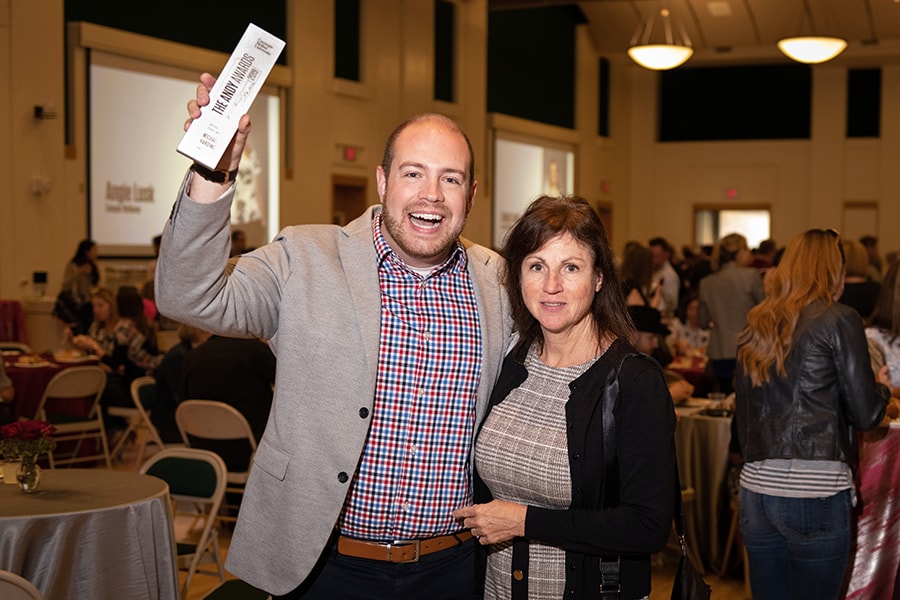Before arriving at Halo, I wrote about sports. I spent a couple months at the Sports Illustrated office as a web intern and my college years doing similar work for the university athletic department, student publications and local papers.
Realizing most of this specialized knowledge would be useless, my boss would sometimes explain new concepts to me by filtering them through sports analogies to prevent my brain from combusting. One such comparison involved corporate relations officers at universities. He described them as a sports agent of sorts; part salesperson, part advocate, working out of the spotlight and finding the best partnerships to set their researchers up for success. I could digest that, but it prompted another question: how similar are sports agents to universities’ corporate relations directors?
As with most analogies, some key differences soon emerged. Most importantly, a sports agent’s duties largely funnel back to the same overarching goal–keep the player happy. By contrast, a corporate relations officer has many parties and differing agendas to juggle, both on the university and industry sides.
“It’s very nonlinear work. It’s a relationship-building job,” said Michael Harding, Director of Business Engagement at Carnegie Mellon University. “Building those [relationships] takes time, and it can go backwards if priorities or structures change.”

Collaborations with industry are crucial for research universities, but the starting point for success is inside the institution. Coordination across multiple teams, offices and labs is underrated both in terms of importance and difficulty because priorities vary widely across campus and can change momentarily. At sprawling R1 universities, it can be challenging to ensure people from different departments are keeping the “cadence” of communication consistent when interacting with the same company. It’s also vital to understand the differences in how people are evaluated because the fight for credit can often hamper progress.
“The most important relationships are the ones internal to your university,” said Caroline Wood, Executive Director of Corporate Relations at Georgia Tech. “If you don’t have that connection to your family internally, you can’t sell what you’re doing outside the university.”
The selling process itself is also different. Athletes drive their own market value based on how well they play, and contracts are typically loaded with performance-based incentives. The agent must negotiate around what similar players are getting paid while adjusting for the client’s age, injury history, tenure with the team, position and more. In any case, there’s a strong correlation between skill and earning potential.
Collaborations with industry are crucial for research universities, but the starting point for success is inside the institution.
When dealing with external partners, university administrators and their departments consider companies of all stripes. Startups and those still growing are welcome at the table next to the big-name corporations because there is always opportunity for healthy, mutually beneficial relationships at every level. Universities aren’t typically confined to one research area, opening up the potential for industry relationships across multiple sectors. That said, it’s easier to take on a variety of partnerships when you have a strong reputation and institutional bandwidth behind you.
“For a lot of companies, we’re a key school. They want access to our students, access to our faculty,” said Megan Puzey, Director of Operations for the Office of Corporate Relations at the University of Illinois. “It gives us some credibility when we go out and prospect.”
With the analogy dissolving before my very eyes, I was pleased to find some similarities between the two professions. For starters, there’s no major to study or precise track to follow for either. Harding was a finance major working campus outreach at BNY Mellon before applying to the gig at Carnegie Mellon on a whim. Wood got a communications degree and worked in multiple university offices at Georgia Tech, including a six-year tenure in alumni relations that ended after she grew weary of “getting between God and the grandchildren for money.” Puzey was an agriculture major teaching groups around the world how to use soy when her old bosses at Illinois asked her to join them on the public engagement team.
Despite differing backgrounds, the trio shares some core skills. One in particular stood out to me during the interviews, and Harding explained how that ability makes him, Wood, Puzey and their peers across the country indispensable.
“I have a seat at this table because I’m a great communicator. I am unafraid to ask questions that make you look stupid in a room full of PhDs,” he said. “They need that matchmaker or bridge builder because that’s just not a strength of theirs. They know what they know but can’t communicate it to a layman.”

Strong communication skills are a must, but so is a healthy dose of curiosity. The industry-university puzzle is constantly evolving, and all three directors mentioned the day-to-day variety as something they enjoy about their jobs. There’s no shortage of new knowledge and ideas between the different types of research faculty are working on and the various applications for it being explored by companies.
Another useful skill in the corporate relations/sports agent toolbelt is the ability to say no. It’s inevitable that interests won’t align, one side isn’t being open-minded, or somebody makes a ridiculous request. Besides, “no” can often mean “not right now,” preserving the relationship’s long-term viability of the relationship. Filtering through the noise, recognizing when to intervene and choosing the correct response is crucial, especially in such fast-paced roles.
We’re the voice for the company and the voice for the campus at the same time. No matter what direction the request might come from, the response can be not to act.
Megan Puzey, Director of Operations for the Office of Corporate Relations, University of Illinois
“With a company, they could be talking about something very specific one day, something very blue sky the next day,” said Puzey. “The day-to-day is never the same because you never know what you’re going to get from the company or the campus.”
Although it’s not a perfect analogy, the sports agent and the corporate relations director are birds of a feather. Being good at either job hinges on communication, relationship-building and matchmaking skills. The specifics and difficulties vary, but as far as analogies go, not too bad.
Sportswriters have a penchant for goofy questions, so I folded one of my own into the end of the interviews: if you had to be an agent for a day, what skills from your actual career would serve you best?
“The ability to build lasting relationships, the ability to read people, and the ability to match make,” said Wood.
“The ability to recognize how to bring things to someone,” said Puzey. “What’s the right thing to bring someone to get the right outcome? It isn’t negotiation.”
“The gift of gab is something I’ve found invaluable, and the ability to find humor” said Harding. “Humor helped disarm some of the most stressful situations I’ve ever been in… it helps recenter the conversation.”








